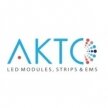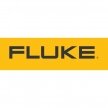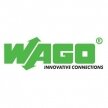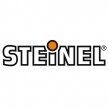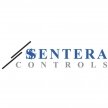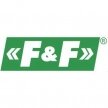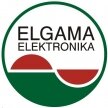-
Product Catalog
- Security and Surveillance Systems
- Automatic Circuit Breakers for Direct Current (DC) Circuits with Integrated Overload, Short-Circuit, and Voltage Stabilization Protection Functions
- Lighting with the help of electrical energy
- Automation and Control Systems
- Sealing profiles | rubber | gaskets | strips
- Inflatable Liquid Storage Tanks | Reservoirs | Bladders
- Inflatable rubber plugs for sealing high-pressure plumbing pipes
- Electrical distribution and installation
- Solar Energy Generation and Management Equipment
-
HVAC control solutions for heating and ventilation.
- HVAC automation
- Fans for ventilation systems
- Ducts and connections for ventilation | air conditioning systems
- Chimney Caps | Deflectors | for Ventilation and Chimney Systems
- Dampers for ducts | ventilation | air conditioning systems
- Duct Silencers | Ventilation | Ventilation Systems
- Air Filters for Ducts | Ventilation | Ventilation Systems
- Supply Air Ventilation Dampers
- Diffusers for Ventilation Systems
- Mobile Air Conditioners | for Indoor Climate Control
- Domestic | industrial air purification systems
- Special products and accessories
- Other products
- Safety tools
- Quality used products
Humidity sensors
-
Read more
Humidity sensors are devices that measure and detect the level of humidity in the environment or materials. They are widely used in various fields where it is important to monitor and control humidity levels to ensure optimal conditions or prevent damage to moisture-sensitive materials and systems.
Main features:
Accurate moisture measurement: Moisture sensors can determine the relative or absolute humidity levels in air or materials.
Environmental control: They are often used in automatic climate control systems where humidity levels are crucial, such as in greenhouses, warehouses, residential or commercial spaces.
Protection from excess moisture: These sensors are essential in industrial and construction fields to prevent moisture accumulation, which can lead to corrosion, mold, or other undesirable processes.
Wide range of applications: Moisture sensors are used in home automation systems, HVAC (heating, ventilation, and air conditioning) equipment, food processing industries, electronics manufacturing, agriculture, and the construction sector.
Technical specifications:Measurement range: Humidity sensors can measure humidity levels from 0% to 100% relative humidity.
Accuracy: Most modern sensors have high accuracy, typically ±1-3% RH (relative humidity).
Integration: Most moisture sensors can be easily integrated into various automation systems or sensor networks.
Durability: Some sensors are designed to operate in extreme conditions, such as very low or high temperatures.
Areas of application:Residential and commercial spaces: They are used to monitor and control humidity levels, ensuring comfort and preventing mold growth.
Industry: In industries, moisture sensors are necessary to ensure optimal environmental control in production processes, such as in the pharmaceutical or food industry.
Agriculture: Used to monitor soil moisture to improve irrigation systems and increase crop yield.
Electronics: In the electronics industry, sensors help protect sensitive equipment from unwanted moisture exposure.
Advantages:Efficient humidity management: Ensures the required environmental conditions in various fields, protecting materials, products, and systems from moisture damage.
Automated control: The ability to integrate moisture sensors into automatic climate control systems helps reduce the need for human intervention and ensures continuous monitoring.
Humidity sensors are an essential component in any system where humidity control is necessary. Their use ensures comfort, safety, and longevity in both everyday environments and industrial processes.No items found.
US IN SOCIAL NETWORKS

